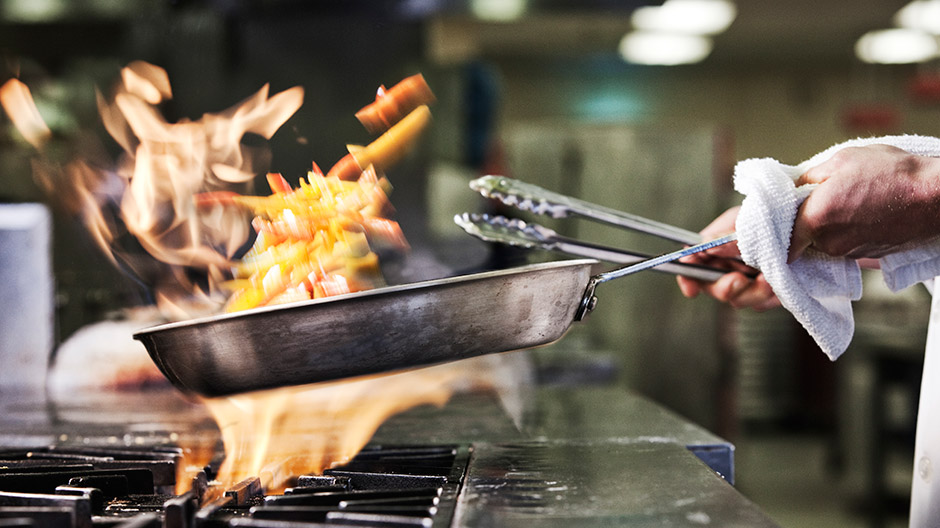In 2020, an estimated 2.4 billion people were still primarily dependent on polluting cooking stoves using firewood, charcoal, and coal, while 69 percent globally had access to clean cooking. Universal access to clean cooking solutions, like gas and electricity, by 2030 is an explicit target under Sustainable Development Goal 7 (SDG7) of Agenda 21. The G20 Bali Leaders declaration also reaffirmed its “commitment to achieve SDG 7 targets and strive to close the gaps in energy access and to eradicate energy poverty.”
Cooking energy poverty has profound public health, environmental, and gendered development implications. It results in 3.2 million preventable premature deaths yearly, and about 30 percent of firewood used for cooking is unsustainably harvested, contributing to forest degradation and 1 gigaton of carbon dioxide equivalent emitted annually—about 2 percent of global CO2 emissions. Women and children in the Global South spend up to 20 hours a week gathering fuel for cooking. The situation is particularly dire in cooking energy poverty hotspots like sub-Saharan Africa, where population growth still outstrips improvements in access rates.
The progress and projections in the clean cooking space are a mixed bag. Over the decade 2010 to 2020, approximately 0.6 billion people gained access to clean cooking globally. However, the International Energy Agency (IEA) estimates that without WHO accelerating access provision, about a quarter of the global population will still lack access to clean cooking in 2030. Also, if a slow economic recovery from the pandemic ensues, as many as 470 million more people—an additional 5.5 percent of the projected population might not be able to afford access to clean cooking in 2030. The recent increased geopolitical tensions and consequent volatile global energy markets have also resulted in price spikes for oil and gas that are pushing clean cooking systems out of reach of many poor households.
A recent World Bank ESMAP/MECS study estimates the economic cost of the lack of universal clean cooking access at US$2.4 trillion. In contrast, an investment of only US$ 150 billion (including US$39 billion by the public sector) per year is needed to achieve the 2030 target. Comparing this cost of inaction with the investments needed suggests an extraordinary return on investment spanning benefits across several sectors, yet there is only lukewarm interest in clean cooking by both private investors and governments, barring notable exceptions. This is evident from the mere 131 million US dollars of reported public and private investments in the sector in 2018.
A key barrier to moving this agenda of large-scale transformation of the global cooking sector is the huge data and knowledge deficit regarding the drivers of transitioning to clean cooking. Such knowledge can incentivise investments, which the sector urgently needs. Solutions to advance clean cooking access, including business models and finance, for communities with a lack of infrastructure, where poverty, patriarchy, and low awareness levels still remain a challenge. Both initial acceptance or adoption and subsequent sustained use of clean cooking systems need to be monitored and understood. This can help not only with scaling up investments and policy designs but also help replicate success elsewhere. This requires new empirical analysis, including longitudinal studies that uncover if sustained use of clean cooking systems persists over time and, if not, what the barriers to this are. Creating effective clean cooking action programmes also requires evaluating the impacts of such programmes on human welfare. Improved data collection and analysis of specific projects as well as comparative analyses that allow for cross-learning across projects and contexts are necessary.
Cross-context learning is a particularly useful, cost-effective, and pragmatic way of sharing knowledge across the Global South with its wide cultural diversity. Such cross-learning can take the form of capacity-building workshops and timely policy briefs to make knowledge accessible to industry players and policymakers. It requires systematically capturing the experiences of various countries and companies and distilling these into a set of best practices for the consideration of new players and new programs. For example, India’s successful roll out of the Pradhan Mantri Ujjwala Yojana (PMUY) enabled 90 million poor women to adopt liquefied petroleum gas (LPG). This was unprecedented in scale and pace and clearly has significant lessons on what to do (and not to do) in such a process. In another example, KOKO, a private player operating in Africa has taken on the polluting but ubiquitous charcoal sales network by selling liquid bioethanol via a large network of fuel ATMs, at competitive prices. Sharing lessons from such cases requires close and continuous engagement with researchers, private, and public sector stakeholders across the Global South.
The Global South Centre of Excellence, announced by Prime Minister Modi in January 2023, can fill a void in this space. India aspires to be the “voice of the Global South” and can lead these efforts by setting up a long-term programme of knowledge generation and dissemination focused on clean cooking. It has enough expertise and experience to start the process of a deep-dive into what practices work well sharing its experience from the PMUY, and its plans to scale up through an initiative just launched in February 2023 a new solar-cum-electric cookstove to 30 million households within the next two to three years. Tapping into its “goodwill” across the Global South, India can lead a coalition of countries that need to accelerate efforts to increase clean cooking access via the Global South Centre of Excellence. This could be the game changer that the sector desperately needs to solve the persistent challenge of cooking energy poverty.




